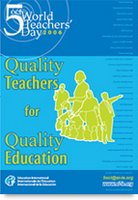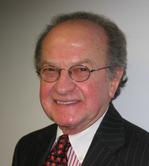 UNESCO, ILO*, UNICEF and UNDP released a joint message on the occasion of the 2006 World Teachers’ Day to celebrate the latter’s priceless contribution to learning and social development.
UNESCO, ILO*, UNICEF and UNDP released a joint message on the occasion of the 2006 World Teachers’ Day to celebrate the latter’s priceless contribution to learning and social development.
World Teachers’ Day was inaugurated in 1994 to commemorate the signing of the Joint ILO/UNESCO Recommendation concerning the Status of Teachers on 5 October 1966. The Recommendation calls for international attention to the issues and restrictions attached to the challenging working conditions of teachers worldwide.
National education systems have been obliged to reform in order to respond to the new socio-economic challenges of a rapidly globalizing world. Yet, the persistent shortage of qualified teachers remains a fundamental constraint to the development of societies. An estimated 18 million teachers at least will need to be recruited over the next decade if quality basic education for all is to be achieved. Poverty reduction efforts, and the improvement of life conditions for all with respect to the basic rights of children and the creation of decent work opportunities for women and men would all benefit from an increase in the number of teachers around the world.
The statement reminds us that, while the Recommendation must be used as one of the basic tools for education reform, teachers’ voices ought to be more integrated into basic education reform decisions, too.
Click here to read the full Joint Message (pdf)
